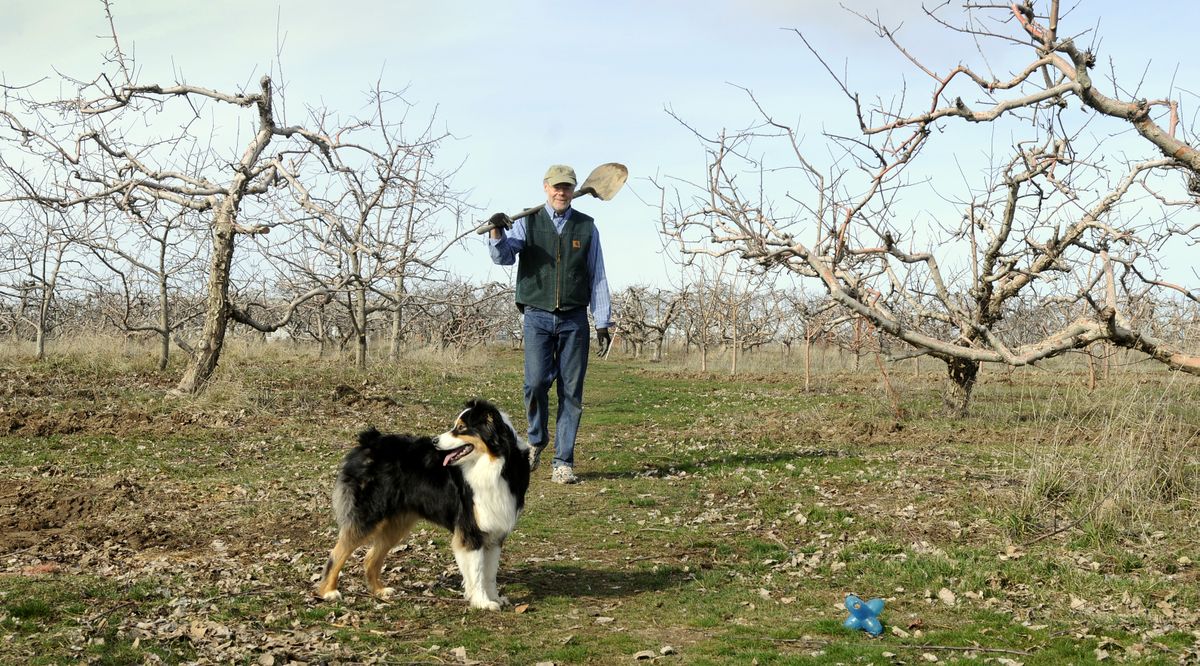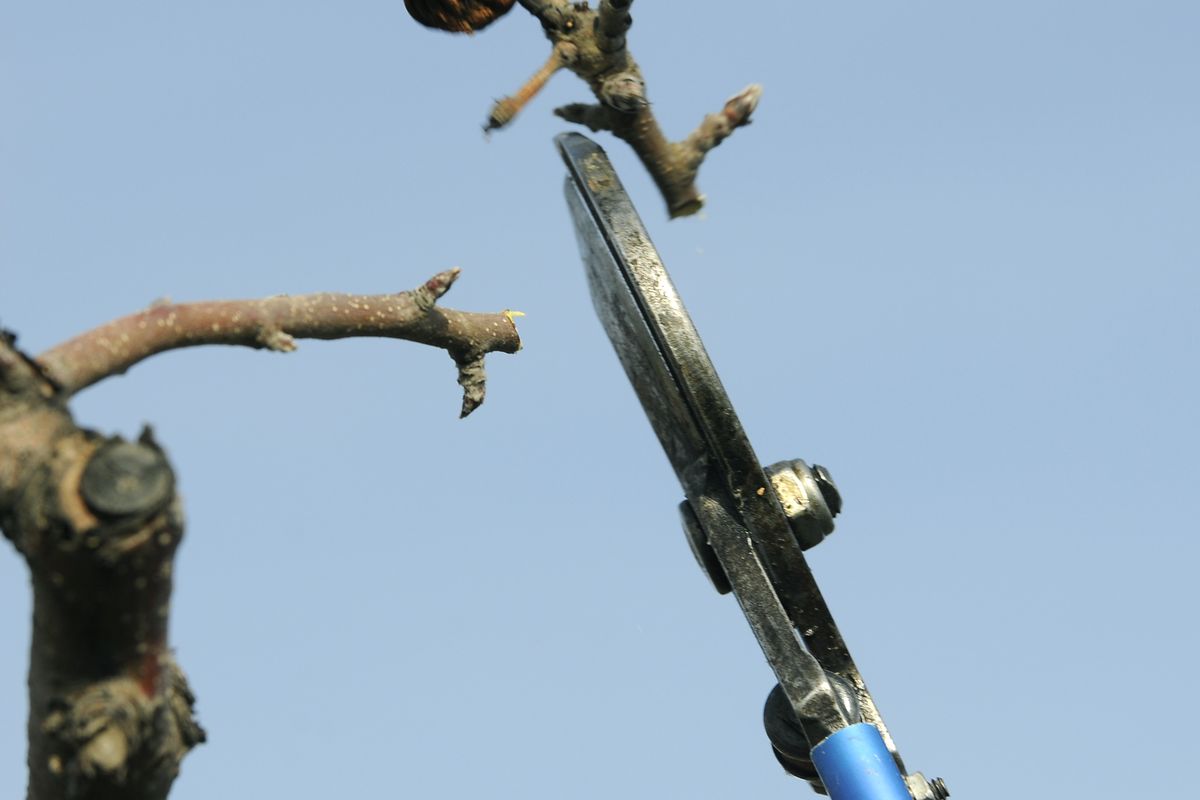Organic orchard
Steve Cole proudly harvests without chemicals on his Green Bluff farm
Steve Cole and his dog Baxter walk through the apple trees at Cole’s Orchard, the only certified organic orchard in Spokane County. (Dan Pelle)
When commercial orchardists grow tree fruits like apples and peaches, they follow an intensive spray schedule to protect the trees from insects and disease. This way, they are able to produce the perfect-looking fruit that consumers want.
But can tree fruit be grown successfully without these chemicals?
As the owner of the only certified organic orchard in Spokane County, Steve Cole knows this is indeed possible. It does require extra effort and a little creativity, however.
Cole didn’t have organic practices in mind when he started his orchard on Green Bluff.
“My young girls wanted to go out and play in the orchard,” he explained. “With some of the sprays I was using, it was an unsafe environment for them to be playing in the trees or digging in the dirt.
“I do a lot of hand-thinning of the fruit and didn’t want to be exposed to the chemicals either.”
He went through a gradual process of assessing how safe each material was and eliminating some of the pesticides.
“Then I looked at the organic certification process and realized I was halfway there,” Cole said. “Why not get credit for what I was already doing?”
While Cole grows apples, apricots, pears and plums, he feels the easiest fruit trees backyard gardeners can grow are Italian prunes.
“They do well here and have very few pests or diseases to deal with,” he said. “I do very little with them, just pruning.”
Cole also thinks apricots are fairly easy to grow, provided a late cold snap in the spring doesn’t wipe out the crop.
“Apple trees require more attention because they are prone to more pests and diseases,” he said.
Cole outlined the steps he goes through to produce organic apples, most of which backyard gardeners can also do.
He always makes sure the orchard has been tidied up at the end of the previous growing season, by removing any fallen fruit and pruning off diseased material from the trees. Cole puts a lot of effort into weed control as well since weeds compete with the trees for moisture and nutrients.
Cole usually prunes his trees in February and sprays them with a dormant oil spray, which is approved for use in organic orchards. The spray will smother overwintering eggs and larvae of many insect pests and is one of the first things that should be done in the year.
When it comes to apple trees, “the first line of defense is prevention,” Cole said. “If some trees have had apple scab or fire blight, I’m out there while it’s occurring, pruning off the infected tissue.”
He disinfects his pruning tools with a weak bleach solution in between cuts.
Apple codling moths are a dreaded pest for any apple tree grower. The adults start flying when the trees begin to bloom and lay eggs on the surface of developing apples. When the eggs hatch, the larvae burrow into the apples, making them unappetizing.
Cole takes an unusual approach to avoid this problem. He sets up dispensers of pheromones – chemicals secreted by animals that attract the opposite sex – at the tops of the trees to confuse the male moths.
This disrupts their mating routine because they have difficulty finding the females. It works well on a large scale but Cole feels it wouldn’t work in a backyard setting.
“If you’ve got a neighbor who isn’t taking care of their trees, then these codling moths can mate there and fly up to a mile to lay their eggs,” he said. “If that happens to be in your tree, you’ve got a problem.”
Cole suggests backyard gardeners try other tactics to deal with codling moths before they lay their eggs.
There is an organic spray marketed under the brand name Surround that contains kaolin clay. When sprayed on apples that are starting to develop, it covers them with a film that discourages moths from laying their eggs.
There are also small nylon “footies,” known as apple maggot barriers, that can be slipped over the developing apples to keep the moths off of them. As the apples grow, the nylon covers expand as well.
Cole thinks using both Surround and the nylon barriers should be successful at thwarting codling moths.
The most important thing to remember is to take care of your fruit trees.
“You can’t just stick a tree in the backyard and leave it alone,” Cole said. “There’s some responsibility involved because if you don’t care for it, you will be impacting your neighbors.”

